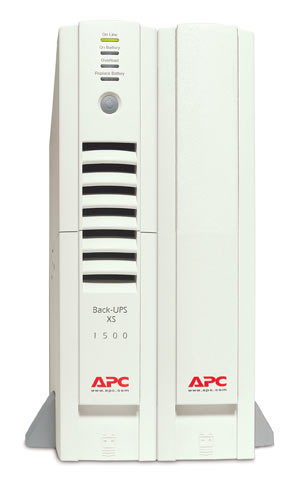The Best Platform For Small Business Server 2003
Don't Forget Power
Redundancy is the key to minimizing downtime. Protect your server with enough battery backup to enable it to shut down gracefully.
When you spend most of your time "inside the box," it's difficult to remember the infrastructure components that make an SBS 2003 deployment tick. A solid network, for example, is crucial for ensuring a satisfying user experience. The right operating system - Windows 2000 and Windows XP Pro, for instance - ensures that client machines can log on to a domain reliably. And an uninterruptible power supply (UPS) protects against accidental data loss in the event of a power outage.
Remember that the idea here is to provide big business functionality on a small business budget; accordingly, you don't need to go crazy with battery backup. Rather, invest in a right-sized unit equipped to power important components for half an hour or so. You'll also want USB or serial connectivity for unattended shutdown, should the UPS run out of juice after hours. Check out APC's Web site (www.apc.com) for more information on picking the right UPS for your application.
In Retrospect
Architecting the right hardware platform for an SBS 2003 deployment involves a certain degree of finesse. You want enough horsepower to stretch a server's useful life out to five years or beyond, while at the same time staying grounded in the small business reality of limited resources.
Understanding today's hardware landscape definitely helps guide the intelligent buying decisions that can generate money as a consultant - or save it as a business owner. Dual-core processing, server-quality desktop chipsets, SAS/SATA storage, and external backup solutions based on conventional technology pretty much constitute the bleeding edge of technology. Yet each helps define the real value message of the SBS.
Get Tom's Hardware's best news and in-depth reviews, straight to your inbox.

